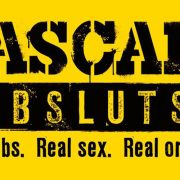Pineapple Support, the adult industry’s leading mental health non-profit, has been donated a sponsorship package by The European Summit for their next affiliate conference. The charity will be sponsoring various elements of the TES Affiliate Conferences in Cascais, Portugal from February 28th to 30th.
Attendees are encouraged to book a meeting at Pineapple Support’s private meeting space at the conference venue to discuss how the company they represent can help support the mental health and wellbeing of adult models and performers.
The sponsorship package donated by The European Summit also includes sponsorship of numerous events over the course of the two days. The following events are sponsored by Pineapple Support:
Friday 28th
15.30-18.00 Meet Market
23.00-05.00 Night Bar
Sat 29th
10.00-11.00 Coffee Reception
10.30-17.30 Candy Station
10.30 – 17.30 Cake Station
11-00-16.50 Pineapple Support Room
11.30-17.30 Thai Massage
17.00-17.30 Tapas Bar
23.00-05.00 Night Bar
Sun 30th
10.00-11.00 Coffee Reception
10.30-17.30 Candy Station
10.30 – 17.30 Cake Station
11-00-16.50 Pineapple Support Room
11.30-17.30 Thai Massage
17.00-19.00 Networking Drinks
17.00-17.30 Tapas Bar
22.30-03.00 Closing party and jam session
“As a leading affiliate conference, TES Affiliate Conferences is always inspired by quality initiatives,” says Walter Andreas, co-founder of TES Affiliate Conferences. “The work of Pineapple Support is outstanding and we are proud to support this initiative whenever possible.”
Pineapple Support was founded in 2018 by Leya Tanit after a string of losses in the adult industry from depression and other mental illnesses. The organisation, which is a registered 501(c)3 tax-deductible qualifying charity in the US and a registered charity in the UK, has so far connected nearly nine hundred adult performers with mental health services, including free and low-cost, therapy, counseling and emotional support.
“We’re incredibly thankful for the comprehensive sponsorship donated by The European Summit. The generosity and support of the whole TES team have allowed us to sponsor a wide variety of initiatives during the conference,” says Tanit. “The private meeting room provides the perfect escape from the hustle and bustle for anyone wanting to learn more about mental health and how your company can get involved.”
Those who want to speak with a member of the Pineapple Support team during the TES Affiliate Conference should email contact@pineapplesupport.org to arrange an appointment.









